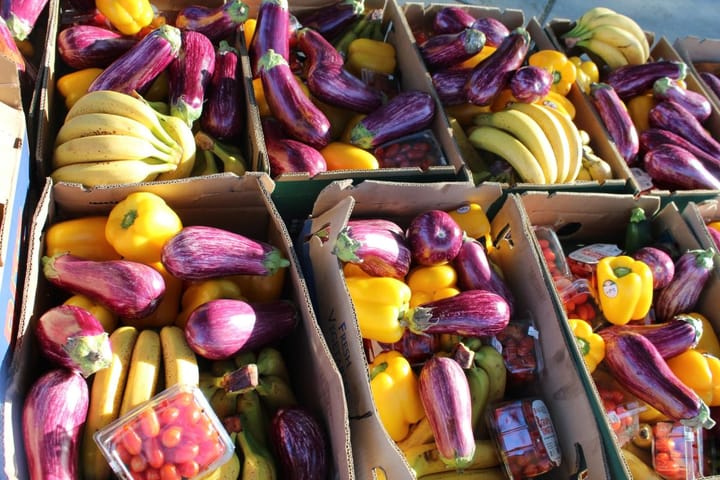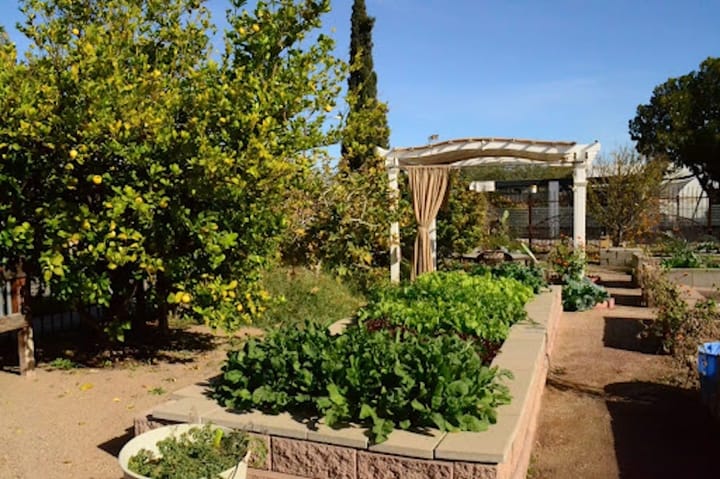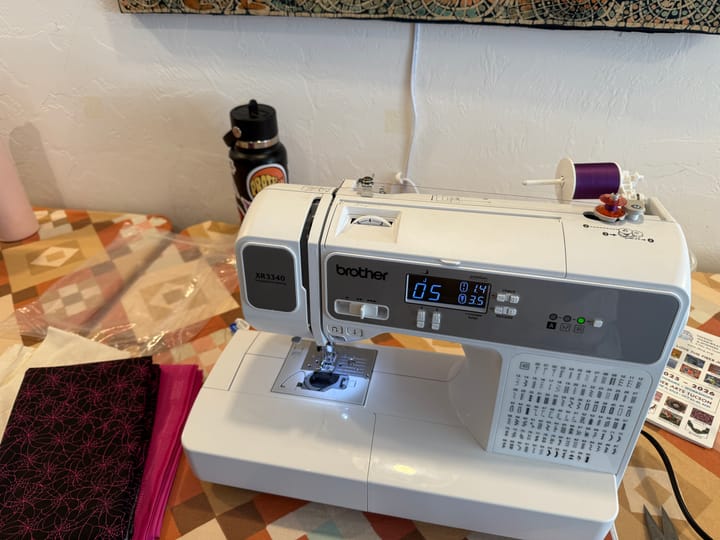Trans youth call for allyship at Tucson event
Trans and gender-expansive youth in Tucson shared their experiences and called for greater community support and allyship at a recent town hall hosted by the Nahui Ollin Wellness Program.

Faced with rising hostility and eroding protections, trans and gender-expansive youth in Tucson gathered with community members to speak openly about survival, identity and the power of being seen.
The Cozamayotl Town Hall, hosted May 24 by Chicanos Por La Causa’s Nahui Ollin Wellness Program, became a call to action, as youth panelists shared stories of resilience and fear while advocates and allies listened, learned and affirmed a shared commitment: queer and trans youth should not have to face the world alone.
More than 600 high school students have participated in the Nahui Ollin Wellness Program, a youth enrichment initiative that offers training in mental health first aid, overdose prevention and healthy masculinity, all grounded in an Indigenous perspective.
“This pillar of the program is called the Cozamayotl, a term in the Nahuatl language that means rainbow,” said Program Coordinator and event organizer Jacob Robles. “As this year was unfolding from January, it felt very urgent to start to figure out how we're gonna best support our queer youth, and what that looks like from our program.”
An international survey found the United States ranked second to last among eight countries in family support for queer relatives. While two-thirds of Americans said they would support a gay, lesbian or bisexual child or loved one, that number dropped to 57% when the person identified as transgender or nonbinary.
A study by the American Psychological Association found that 16.8% of youth faced rejection from all family members after coming out. This group showed significantly higher rates of depression and lower self-esteem than peers who were at least partially accepted.
The intergenerational panel included four young adults who identify as trans, nonbinary or genderqueer, along with author, activist and local historian Lydia Otero, who has written a memoir on their queer experience.
The panel was moderated by Vida Rodriguez, a youth and peer outreach specialist with Goodwill Southern Arizona, who has worked directly with queer and BIPOC youth facing challenges in their lives.
When Rodriguez came out as trans to his family, he was not accepted, resulting in housing instability. And while local shelters were an option, trans people have historically faced higher risks of discrimination and violence in such spaces.
“I was afraid of how (they were) going to treat a trans kid,” Rodriguez said. “Are they going to separate me to the girls shelter? Are they going to take away my testosterone? Are they not going to give me access to my testosterone? Those are scary questions that cis people don't really understand.”
He found solace and empowerment through learning about queer history and confirming that queer people in the past had found ways to move forward, even during times of conflict.
“I didn't know that there was a history about Stonewall,” Rodriguez said, referencing the Stonewall Uprising, a series of protests and demonstrations in 1969 against a police raid on the Stonewall Inn, a gay bar in New York City. The riots are widely considered a catalyst for the modern LGBTQ+ civil rights movement. “Once I started to learn about it more, I kept telling myself, ‘It’s going to be fine. It's going to be over, liberation will come. We're going to be happy soon.’ That's what diving into history (was) like."
Rodriguez was recently recognized by the Metropolitan Education Commission for his work in the community supporting youth like him. He spoke about the difficulty of balancing being a resource for others while recognizing his own limits.
“It's scary being a young adult who is a role model. As a 19-year-old that is having siblings or parents of youth coming to me, it's a lot to acknowledge,” Rodriguez said.
Organizer Robles said it’s more important than ever to validate young adults like Rodriguez and the teens he works with and support their needs and experiences.
“We’ve got to put ourselves in spaces where (the community) is able to learn and ask questions, and also have allies to teach and answer some of those uncomfortable questions that aren't necessarily the youth's responsibility,” Robles said.
Athena, one of the youth panelists, said a recent encounter with a young trans girl inspired her to get involved with the town hall.
“She's scared of her future. She was scared (of getting) killed and (that) somebody was going to do something to her,” Athena said. “I want to be like that older sister that she would need in the future, knowing that I made it, and that she'll make it through no matter what.”
Athena has already experienced gaps in her gender-affirming care, and with the passage of federal bills affecting Medicare coverage, continued interruptions are a major concern.
“It's so messed up,” she said.
She’s also faced obstacles including homelessness, which came with its own safety concerns. Athena said that if it weren’t for a friend’s mom, she wouldn’t have had a home, highlighting the importance of allyship.
“Being homeless as a trans teen in Tucson (is) very scary,” she said. “My best friend's mom reached out. She's helping me with my housing. She's an amazing ally.”
Another youth panelist, Marcel, emphasized that political issues like immigration affect more than just one group.
“My dad, he immigrated from South Sudan, and (has) every single legal right to be here. Even though it might not be affecting all of the queer youth, it does impact us,” he said. “I would say that the consequences of our current presidential administration are probably the biggest things facing our community right now.”
Marcel, who is passionate about theater and activism, draws inspiration from outspoken onstage characters.
“The most inspiring thing to me is just seeing queer, BIPOC people in places of power, in places where they're sharing their voice and sharing their stories,” he said. “That's the type of thing that inspires me most in the media. Having people who know who they are, know what they want, and do what everyone else does, but as authentically themselves.”
Marcel urged both queer and non-queer adults to be open to and supportive of youth perspectives.
“Have an open mind, whether that means different concepts, different ideas, welcoming a person for who they are and how they've gotten to where they are,” he said. “(Have) that open mindedness to learn more about someone (and) where they’ve come from.”
Panelist Alix is the founder of Margins, a grassroots community group for youth by youth that holds space for trans, queer and intersex individuals through DIY concerts and creative workshops. They spoke about having queer friends who are immigrants, noting that fears of ICE prosecution or investigation have created barriers to gender-affirming care.
“It's really important to understand that it goes beyond just queer people. If you decide a whole group of people does not deserve autonomy over their own body, you can decide any group of people doesn't have autonomy over their own body,” Alix said. “Once you're able to recognize that and make those connections, it's not just queer people, it's all of us.”
Alix encouraged attendees to study queer and Indigenous history as a source of resistance and a tool to challenge harmful rhetoric and false narratives.
“Medicine comes in different forms,” they said. “There's medicine in terms of our communication, and that holds power. When we're speaking about history, there's no way to move forward without recognizing that medicine and respecting it and appreciating it.”
Alix also emphasized the importance of allies uplifting queer voices — not just as an act of kindness, but as a way to protect a vulnerable population.
“Just saying, ‘Oh, yeah, that's unfair,’ isn't enough. Allies need to be more than just nice. Right now, in times where people are fearing their lives, they need more than decency,” they said. “What inspires me … are really good queer allies (and) their way to take on that unfairness head-on.”
All the panelists agreed that it's important to see older members of their community succeed, finding hope and empowerment in witnessing someone from their community live a full life.

Author Otero commended their young co-panelists for being present and using the platform to freely express what’s on their minds. They said the existence of queer youth is evidence of queer resistance.
“What do you want to be in your story?” they asked. “You're resisting every time you take your meds, every time you take the shot, that's resistance. We're resisting by creating.”
Otero noted that while modern movements differ from those of the past, it's important to reflect on the new tools available today.
“There's never been a time like this,” they said. “Teaching people … That's important. But we also have to start thinking about what makes this time unique right now? What resources are here? What's driving this hate, and how can we undo the hate?”
Violeta Dominguez is with the Colectivo de Familias Arco Iris (Rainbow Family Collective), a committee created by the Coalición de Derechos Humanos. The group provides resources and support for parents and family members of Hispanic LGBTQ+ individuals.
“We feel that our space as parents is supporting other parents in the journey as they learn about their children's gender identity or sexual orientation,” Dominguez said.
She said limited access to accurate LGBTQ+ information and safety concerns can leave families feeling overwhelmed and confused, especially when those who recently came out may not be emotionally ready to answer their questions.
“What we tell parents is, ‘You're not alone,’” Dominguez said. “It doesn't have to be an isolating experience. There are many families like yours out there, many loving parents who have gone through (this) process. Come to this space to process all of those feelings. Come and ask those questions that you may be afraid of asking in other spaces.”
Panelists urged attendees to help create more spaces where LGBTQ+ community members feel safe and can engage in important conversations.
“Please realize that this is all real,” Rodriguez said. “This is impacting all of us, every single one of us.”
Topacio “Topaz” Servellon is a freelance journalist out of Tucson. Contact them at topacioserve@gmail.com.
Tucson Spotlight is a community-based newsroom that provides paid opportunities for students and rising journalists in Southern Arizona. Please support our work with a paid subscription.



